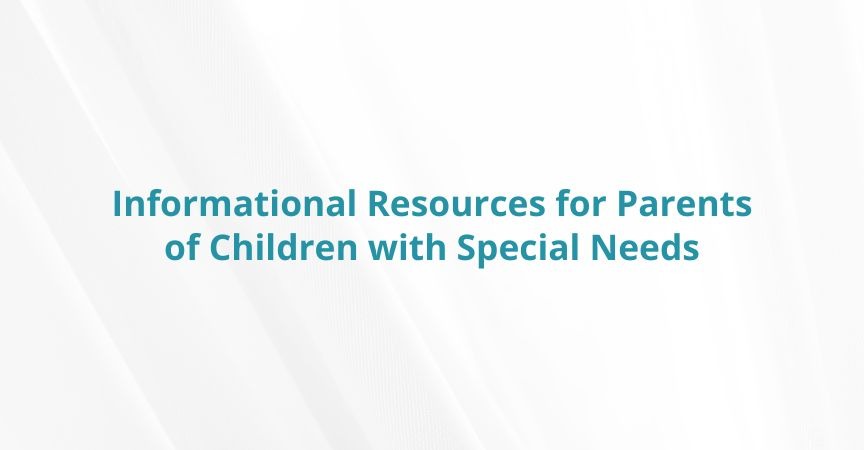For parents of children with special needs, having access to clear, reliable information is essential. Understanding your child’s rights, available academic services, and educational options helps you make informed decisions and advocate more effectively for their unique needs.
Guidance surrounding Individualized Education Programs (IEPs), behavior plans, medical accommodations, or legal protections can help families navigate complex systems, connect with supportive communities, and access the services their child is entitled to by law.
For over a decade, California education rights attorney Jennifer Chang has empowered parents of children with special needs through legal guidance and advocacy. In this post, she shares national and state-wide resources that provide families with essential information and strategies to navigate the California public school system.
Top National Resources
Several national organizations provide trusted resources and support for families of children with special needs:
- PACER Center: The PACER Center offers information on disability laws and parent advocacy, as well as educational programs and workshops for parents. Their resources include advice and guidance forums, webinars, and published materials tailored to families.
- The Autism Society: This organization provides resources, community connections, and advocacy guidance for children and adults on the autism spectrum. The Autism Society Training and Resource Center provides access to courses, certifications, and additional community advocacy resources.
- Parent to Parent USA: Parent to Parent connects families with trained volunteers who offer support, guidance, and provide referrals. With dozens of member organizations across the country, families are provided the resources and community needed to help their children thrive.
Top California Resources
California parents have access to many local groups and organizations that engage on state-specific policies and services, offering information, assistance, and legal pathways:
- California Department of Education (CDE) Special Education Division: The CDE provides guidance on special education programs, compliance, and resources for parents and educators. From printed materials to education content standards, the CDE has a wealth of information about current and developing programs in California schools. The site also contains a district directory to connect with administrators across county offices and schools, and provides an annual state-wide vendor list of Nonpublic Schools and Nonpublic Agencies that serve students with disabilities.
- Disability Rights California: This organization advocates for the rights of people with disabilities of all ages and provides legal guidance and information for families. DRC provides information about public policy initiatives, the latest news impacting individuals with disabilities, and educational events that support the well-being of children and adults with disabilities.
- California Department of Developmental Services: The DDS offers services and support for individuals with developmental disabilities, including access to and information about regional centers throughout the state. Online resources include published works on topics related to developmental disabilities, as well as statewide initiatives and upcoming events, such as workshops, town halls, and lectures.
Parent Advocacy Resources
Parents of children with disabilities struggling to navigate the public school system often turn to others with similar experiences for information and reassurance. Advocacy communities, both online and in person, help families understand their rights and connect with local resources. While parent groups can provide tremendous support, it is important to ensure the information you receive is accurate and relevant.
- Family Resource Centers: California boasts 47 centers across the state that offer training, workshops, and one-on-one guidance to help families navigate early childhood educational and developmental services. The organization provides training opportunities, parent networking, and a collaborative system of peer-to-peer support.
- California Association for Parent Child Advocacy: This network supports parents in advocating for their child’s education and connects families with legal and educational resources. CAPCA members have access to networking and community events throughout the state, volunteer opportunities, and a platform to share resources and information.
- Parent to Parent USA: In addition to providing a national network of professionals and volunteers to support families individually as they navigate life with a child with disabilities, the organization also offers specialized support groups that create an environment for parents to connect and share their experiences.
When to Consult an Education Rights Attorney
Even with access to excellent resources, navigating special education law can be challenging. With the proper support, parents can ensure their children receive the services and protections they are entitled to. An education rights attorney can assist with issues like IEP disputes, disagreements over school placement, or denial of services. Consulting a qualified attorney helps ensure your child’s rights are protected and that you receive professional guidance specific to your needs.
Education rights attorney Jennifer Chang offers dedicated support for families of children with special needs. She guides parents through the legal process, advocates for appropriate educational services, and helps resolve disputes with schools or agencies. She strives to empower families with knowledge, representation, and support so that every child has the opportunity to succeed in school.
Contact the Law Offices of Jennifer Chang today to find out how she can assist your family in securing the services, accommodations, and educational opportunities your child is legally entitled to.
